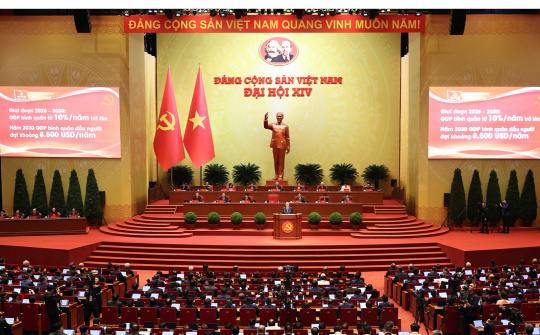Service sector is expected to expand by 7-8% in the 2021-2030 period and account for 50% of GDP by 2030.
In the 2030-2050, the sector is expected to grow faster than the average rate of the national economy and occupy 60% of GDP.This is part of the Strategy on service sector development in the 2021-2030 period with a vision towards 2050.

Restructuring service sector
The strategy looks to reform institutions, boost the service sector in a more transparent, efficient, and competitive manner in the context of the Fourth Industrial Revolution (Industry 4.0) and Viet Nam’s deep integration into the global economy.
Services will be restructured on the basis of modern technology, application of Industry 4.0 especially in such areas as finance, banking, insurance, healthcare, education, transport, logistics, trade and tourism.
Especially, the strategy attaches importance to knowledge-intensive and competitive services including distribution, tourism, IT, finance-banking, logistics, education and training, and healthcare. Tourism service centers will be set up with a view to churning out high-quality and competitive tourism products with bold national and cultural identity.
Domestic and foreign economic components will be mobilized to upgrade and build modern infrastructure and technical facilities in favor of service development. Especially, State budget allocation will give a priority to modernization and upgrading key infrastructure sites namely transport, airports, seaports, telecom, tourism, finance, and banking.
The strategy looks to open service markets in line with Viet Nam’s international commitments.
Development orientations
The strategy targets to boost serve development in different regions.
Delta regions will develop scientific and technological applications to services for production and business, health service, and social welfare. Large-scale service hubs will be formulated in Ha Noi, Hai Phong, Da Nang, HCMC, and Can Tho on trade, tourism, finance, and logistics.
Northern midland and mountainous regions will focus on ecological and cultural tourism in order to optimize potentials of natural resources, historical relics, and cultural characteristics of ethnic groups. The regions will develop infrastructure and utilize advantages of border gates to develop distribution and tourism services.
Seas, coastal and islands areas will develop tourism, sea transport, logistics, and services. Large-scale logistics hubs will be established in Hai Phong, Da Nang, HCMC, Ba Ria-Vung Tau, and Can Tho. Fishing services and service infrastructure will be promoted in islands especially those of significance for socio-economic development, security, and national defense./.





